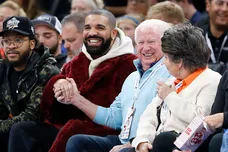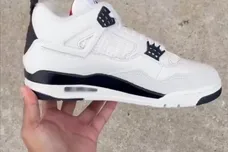ESPN's Jackie MacMullan published the first story in a five-part series today that will examine various NBA players' personal experiences with mental health struggles. Among the players featured in MacMullan's series is former Boston Celtics great Paul Pierce, who discussed his battle with depression during the 2000-2001 NBA season, following a 2000 stabbing.
Despite being stabbed 11 times, including in his face, neck and back, and suffering a collapsed lung on September 25, 2000, Pierce still played every game that season. As Pierce explains to MacMullan, he was struggling to cope with the attack in the months after the incident, and even had a panic attack while greeting fans as part of a promotion for the Celtics’ season opener.
“I couldn’t be near crowds,” Pierce said. “If I got in a crowded place, I’d start shaking inside. It took me years to get over that. If I was walking and someone bumped into me or rubbed against me, I’d freak out.”
"I was stabbed 11 times," Pierce told MacMullan. "I felt like I was trapped in a box. I couldn't go nowhere."
"I battled depression for a year. The only thing that saved me was basketball."
"I think that's the reason I got back on the court so fast. Me sitting at home thinking about (the stabbing) didn't work. I went to every practice, sat on the sideline for hours, because that's where I felt safe. I didn't want those practices to end because then I had to go back out there in this world that really scared me."
Pierce also opened up about how he received a death threat while eating at a Boston restaurant, which only added to his paranoia.
MacMullan writes, "His anxiety spiked while dining at Morton’s restaurant in Boston just a few months after the stabbing, when the manager approached him with a house phone and said a friend was insistent on speaking with Pierce. He picked up the receiver, and a menacing voice sneered, “I’m going to kill you.”"
“So now I’m really paranoid,” Pierce says. “I don’t want to go anywhere. The police sat in the front of my house for months. I was a mess.”
You can check out the first part of MacMullan's series on the NBA's mental health problem here.
Pierce








